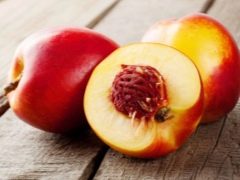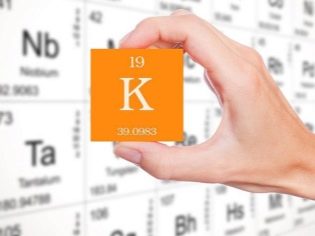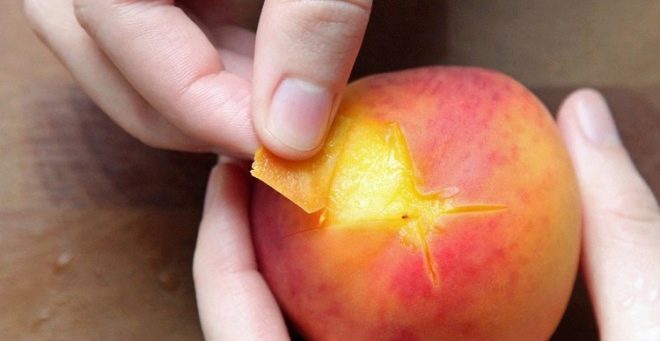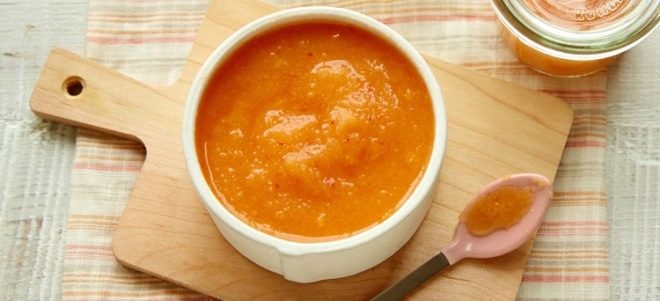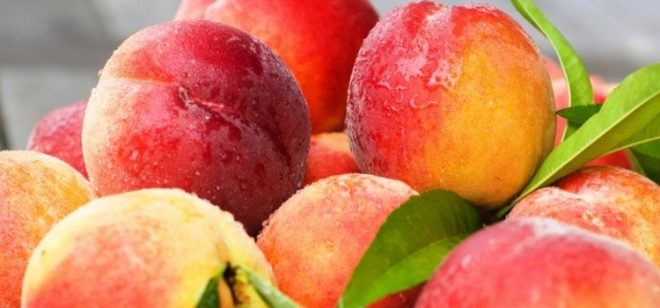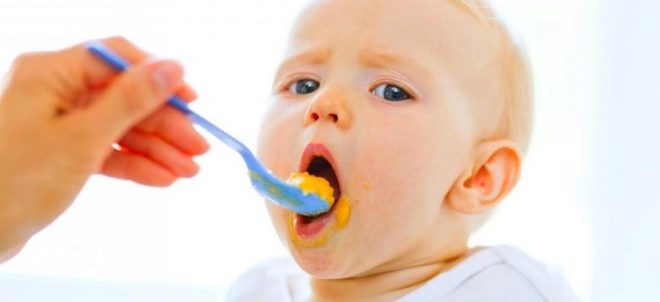Nectarine in breastfeeding and baby feeding
Nursing mothers pass a lot of nutrients to the baby with breast milk. True, and not too useful substances that mother receives with the products, too, goes to the baby. Therefore, there are often questions about what can and cannot be eaten while breastfeeding. In this article, we will talk about whether nursing mother can eat nectarine, as well as the timing of the introduction of this fruit in feeding the baby.
About the product
Nectarine is a subspecies of peach, which arose not thanks to the efforts of biologists and breeders, but by the will of nature, quite naturally - just a peach fell into an unfavorable climatic environment, as a result of which it mutated and produced a slightly different fruit. Nectarine has a delicate and smooth skin, while regular peaches are more “moss”. The taste qualities of nectarine rarely leave indifferent both children and adults. These fruits have tender pulp, they are juicy.
Nectarine is significantly inferior to peach in nutrients, it contains several times less vitamins. But even this fact does not detract from its benefits - it contains a lot of vitamins A, C, E, and is also rich in chromium and potassium silicon. The chemical composition of the fruit is considered sufficient to compensate for the need of a nursing woman in the necessary substances for her body.
Can I feed?
When breastfeeding women become more attentive to what they eat. A cautious attitude towards nectarine was born on the basis of the common myth about the dangers of all red berries and fruits, since they can cause allergies in the newborn. In practice, this statement is far from the truth. Pigments, which give this color to nectarines and other red fruits, are not considered allergens, they are useful for both women and babies. But the catch is that any fruit, regardless of its color, is a potential allergen, that is, if certain factors coincide and the predisposition of the infant is, it can cause food allergies.
If a woman has long lived in an area where nectarine is not considered exotic, then there is absolutely nothing to worry about: she “handed over” to the child the genetic memory of the food that is habitual for her habitat. The innate immunity of the child contains a certain set of antibodies, not only to common viruses, but also to certain allergens.
From this we can conclude that nectarine nursing mothers of central Russia, the Volga region, the south of the country can eat. But for women in the Arctic, it is better to refuse him during the breastfeeding period.
Naturally, the use of peaches and nectarines during breastfeeding should be careful and dosed. Allowed - it does not mean that a newly-made mother can gobble up a kilogram or two of this fruit at one time. If you want nectarine, you need to start with half the fruit per day. If the child does not show allergies, then you can increase to one fetus, and then - to two. Maximum - three nectarines per day, provided that the child does not have an inadequate response of the body to the food addiction of the mother.
If, before pregnancy, a woman ate nectarines with a skin, then with the birth of a child everything changes - they will have to be cleaned from thin skins, because it may contain in a small amount chemicals that fruit trees were processed, as well as substances that were processed before transportation for longer their storage.
What all nursing mothers should give up is the canned nectarines, even if they are cooked at home with their own hands. First, because of the large amount of sugar in the product, and secondly, because of the preservatives. Neither sugar nor preservatives are needed in such a crucial period of the first months of life of the crumbs.
Baby food
The introduction of nectarine in the nutrition of the child is another common question, deciding which one must take into account that nectarines are rich in carbohydrates. Not every child such a fruit will be useful, for example, with a congenital form of diabetes mellitus or a loose, overweight child, it is better to give apples.
If the child has no problems with blood sugar levels, allergies, then you can begin acquaintance with this fruit from the age of six months. If the baby is breastfed, it is recommended to administer nectarine at the age of 7-8 months.
In the first month you need to give fruit only in the form of mashed potatoes. You can buy baby special baby food with nectarine or make homemade mashed potatoes. For this, a ripe fruit is kept in boiling water for five minutes, peeled, finely crumbled and ground with a blender without adding sugar. Before each meal make fresh mashed potatoes, it can not be stored.
You should not give the child nectarine puree every day or even several times a day. Based on the basic principle of baby food - diversity, it is best to prepare the baby twice a week.
Lure start with half a teaspoon. Gradually increase the volume, but carefully observe the child. If rashes, reddening of the skin, eating disorders, frequent urination appear, it is better to temporarily abandon the use of this fruit and try to introduce it into the food in a month or two.
One year old baby can be offered peeled and diced nectarine. In the year the baby is able to chew on a relatively soft fruit on their own. From one and a half years it is possible to offer fruit by halves. And from three years you can give nectarine with a peel, under the conditions that it is grown in your strip and if it has not been subjected to chemical treatment.
Reviews
According to reviews of young mothers who ate nectarines with pleasure when feeding babies, the child did not show any negative reactions. Mothers of infants who have been given such fruit in their foods, say that the children like the taste of nectarine, and after meeting him it is quite difficult to feed the baby with more sour mashed potatoes, for example, apple.
Experienced mothers do not advise giving nectarines to children of any age in the evening. Since they stimulate urination, at night you and your baby can expect unpleasant wet “surprises”. Also, mothers are cautioned to give the baby nectarine as a whole, because its bone is quite large, and the desire to try it occurs in absolutely every child, and therefore the baby may choke and need medical attention.
About what signs suggest that you can already start feeding, as well as how correctly and in what period of time it should be done, see the next video from Dr. Komarovsky.
